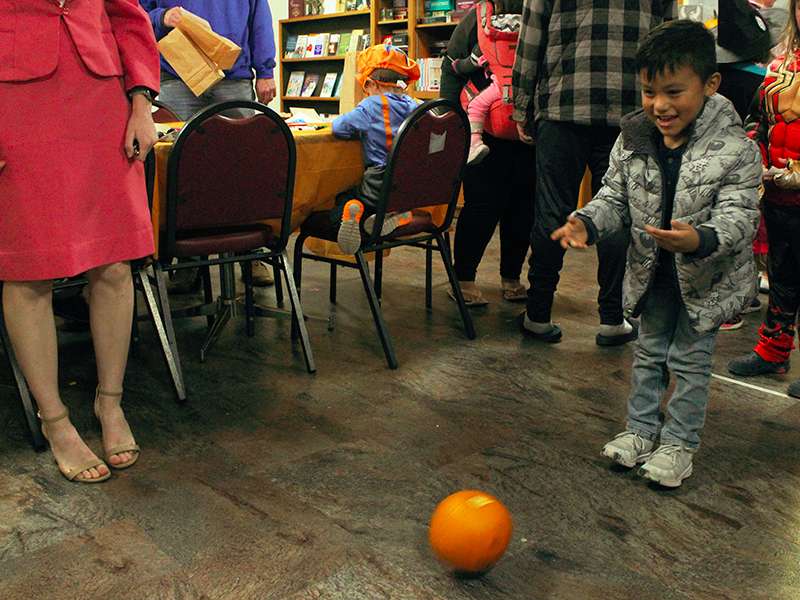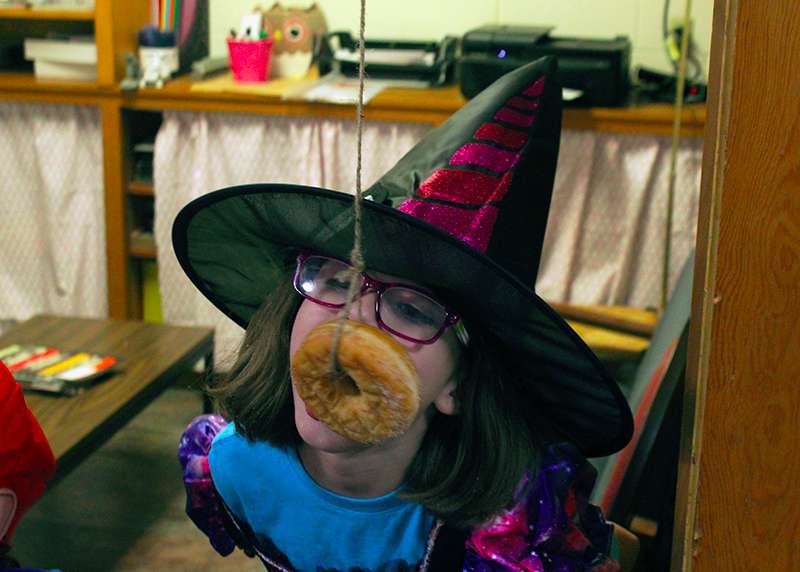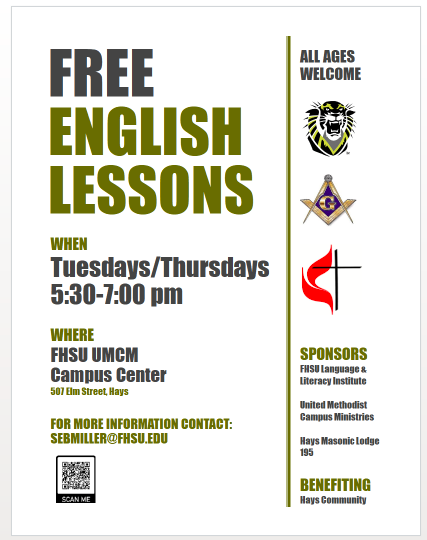

By CRISTINA JANNEY
Hays Post
Two women have brought their passions for literacy to a growing Fort Hays State University program, which is helping people of all ages enhance their reading and language skills.
The FHSU Language and Literacy Institute offers free reading tutoring and English as a second language classes both in person and online across the state of Kansas.
Sarah Broman Miller, FHSU assistant professor and reading specialist, said 67 percent of Americans are functionally illiterate, which means they can't read at an eighth-grade level.
This means many people can't fill out job applications or read the news and discern what is fake news and what is not, she said. It's not because people aren't intelligent, it's because they lack the reading skills, she said.
Broman Miller created the literacy program about three years ago. It has grown from a handful of participants to 65 students with both children and adults receiving services.
"I was getting a lot of calls from superintendents, from teachers, from parents who were requesting reading services for their children and out in rural Kansas, we just don't have those services," Broman Miller said.
If a family had to go into a city to receive similar services, it would cost them $70 to $100 a week. The FHSU program is free.
About 15 students receive tutoring at the United Methodist Campus Ministries center. Some receive tutoring in person in their own communities and others receive tutoring online.

Dyslexia leads to donations
Broman Miller's dream to bring more literacy services to rural Kansas would not have been possible without donations from the Hays Masonic Lodge No. 195. Christopher Neeley is the master of the local lodge, and his aunt has a special interest in helping individuals with learning disabilities.
Brenda Marsh has severe dyslexia. She was 40 before she was tested and learned she had the disorder.
Growing up, she was placed in special education classes with severely developmentally disabled or emotionally disturbed children. Children in these classes had birth defects, Down syndrome, banged their heads, yelled and ran around the room.
"I felt this is not me, but this is the best of what I am worth," she said.
She added "My self-esteem was very, very low. I wouldn't let anyone get close enough to me to let them know."
Marsh was never able to receive meaningful help for her dyslexia and still struggles with reading. She often has to ask someone to read texts for her.
However, she persevered. After she finished school, she found a job selling glasses. She learned to adapt and eventually worked her way into the corporate world.
"It was very crippling for me over the course of my life, because until I got into management, I was making minimum wage," she said.
When she learned through her nephew the Masons were going to support the literacy program in Hays, she and her husband gave generously to the program through the Masonic Temple.
Brenda and her husband, John, Thursday night attended a Halloween fun night for the program. She was all smiles as she watched the children, dressed in their costumes, play games.
"I see these kids and they are running around, and there's so many of them, and they don't have a care in the world," she said. "That's what you need to make every child feel."
She said she sees a different future for the children in the program.
"They've come a long way is all I can say," she said, "No one knew what to do with me. They know what to do with these children."
Broman Miller said the tutoring is instruction beyond what students have access to at school. The help is one on one.
In addition to learning disabilities, such as dyslexia, children coming from low-income homes may struggle with literacy skills because of a lack of access to experiences like vacations and museum trips that help build vocabulary, Broman Miller said.
The average low-income child is exposed to 30 million fewer words by the time he or she enters kindergarten than children who come from middle-class and upper-class homes, Broman Miller said.
"People might think that's not a big deal, but it is a big deal," Broman Miller said. "Hearing that language and being spoken to — those all set the stage for reading."

Families learn English together
Broman Miller said whole families use the English as a second language program. Although the program is working with a number of Spanish-speaking families, an FHSU student from West Africa and a refugee from Ukraine living in Topeka are also in the program.
One of the families who is receiving tutoring at the center has only been in the United States for five weeks, Broman Miller said. She said the family will receive help learning both spoken Engish and reading.
"They have children who are elementary school age, and they all need help," Broman Miller said. "That's why we decided to focus on educating the whole family because we know when you educate the whole family, you're going to have much better results. ..."

Future teachers learn to teach
FHSU teacher education students complete 18-hour practicums with the program. They learn to give assessments and tutor students.
"The teacher ed students — they get to see first hand what good instruction looks like and [how] to use good, structured literacy principles as they're teaching," Broman Miller said. "They're learning all of these things to be good reading teachers while they are here using the software and working with children in the field."
Brandy Ontiveros, FHSU senior from Stratton, Colo., is working with a boy, whose family recently came to the United States from Mexico. Ontiveros, who is bilingual, is helping the boy with his English language, as well as his reading skills.
"I've been able to help him learn new vocabulary, learn the sounds that the letters make, learn about the names of the letters in English and start his foundations of English," she said.
Jessica Espinoza, FHSU senior from Denver, is doing an internship this semester and said she is giving assessments that her mentor teacher has never heard of.
Espinoza said she struggled with reading when she was in school, and working with children in the program has meant a lot to her.
"I had amazing teachers who always helped me before school during school and after school, so I always want to be someone to help students with reading so they can be successful just as my teachers were with me," she said.
Continuing to grow
As the program grows, the program is still accepting donations through the FHSU Foundation. Please note funds should be directed to the FHSU Language and Literacy Program. Volunteers are also accepted.
The Kansas Department of Corrections recently approved an agreement with the program to offer tutoring to women at the Topeka Correctional Facility. Those women read on average at about a fourth-grade level, Broman Miller said.
Broman Miller is also working with the Department of Corrections to identify the incarcerated women's children who may need reading tutoring. Volunteers will be tutoring women at the prison online, and her FHSU students will tutor the women's children.
"My cup is absolutely overflowing with this," Broman Miller said. "When we started we had maybe five or six people who came. Within six weeks since we opened here at this location, when my husband and I joined forces between the campus center and here, it's like someone turned on the fire hose.
"I get parents asking all the time for free tutoring for their children and the agreement with the Department of Corrections — it's fantastic. I know there are so many more people we can reach. It's just getting the word out there."
If you are interested in learning more about the program or wish to sign up for services, visit https://www.fhsu.edu/tiger-read. You can also show up for services without registration.
The on-campus program works with kindergarten through 12th-grade students from 3:30 to 4:40 p.m. Tuesdays and Thursdays at the United Methodist Campus Ministries center, 507 Elm, Hays. English language classes are from 5:30 to 7 p.m. on Tuesdays and Thursdays. Thursday nights the program offers a family-style meal for all participants.






